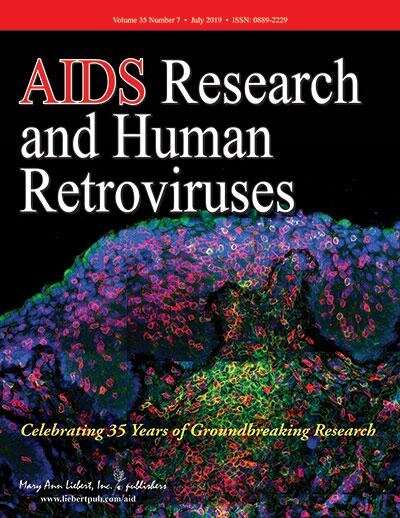Multiple dosing of long-acting rilpivirine in a model of HIV pre-exposure prophylaxis

A long-acting antiretroviral agent such as rilpivirine could further improve pre-exposure prophylaxis (PrEP), already shown to be safe and effective at preventing AIDS in high risk populations, as it could overcome problems with poor medication adherence. A new study examining the safety, acceptability, and effectiveness of multiple doses of injected rilpivirine is published in AIDS Research and Human Retroviruses, a peer-reviewed journal from Mary Ann Liebert, Inc., publishers. Click here to read the full-text article free on the AIDS Research and Human Retroviruses website through August 25, 2019.
The article entitled "A Multiple Dose Phase 1 Assessment of Rilpivirine Long Acting in a Model of Preexposure Prophylaxis Against HIV" was coauthored by Ian McGowan, Orion Biotechnology (Ottawa, Canada) and an international team of researchers from University of Pittsburgh (PA), Magee Women Research Institute (Pittsburgh, PA), Alpha StatConsult (Damascus, MD), University of Liverpool (U.K.), University of Pittsburgh Graduate School of Public Health, Janssen Research and Development (Beerse, Belgium), The Translational Science Corp. (Los Angeles, CA), and University of Miami, Miller School of Medicine (Miami, FL).
In this phase 1 study, women and men received three intramuscular doses of rilpivirine 8 weeks apart. The injections were shown to be safe and well tolerated, with injection site pain being the most common adverse effect. In an ex vivo model of HIV PrEP using tissue samples in the laboratory, the drug was associated with significant inhibition of HIV replication in rectal tissue, which persisted for up to 4 months after the last dose of rilpivirine. The drug was not, however, associated with viral suppression in cervicovaginal tissue.
Thomas Hope, Ph.D., Editor-in-Chief of AIDS Research and Human Retroviruses and Professor of Cell and Molecular Biology at Northwestern University, Feinberg School of Medicine, Chicago, IL states: "There is currently a significant effort to develop long-acting formulations of drugs that prevent HIV replication and can be utilized to prevent HIV acquisition (PrEP). PrEP works if properly taken. Long-acting formulations can eliminate problems when high risk individuals forget to take their pills every day. The development of successful long-acting PrEP formulations will decrease new HIV infections by providing improved protection from HIV acquisition by eliminating problems for individuals who don't like pills or can't remember to take their pill every day."
More information: Ross D. Cranston et al, A Multiple Dose Phase 1 Assessment of Rilpivirine Long Acting in a Model of Preexposure Prophylaxis Against HIV, AIDS Research and Human Retroviruses (2019). DOI: 10.1089/aid.2018.0265



















